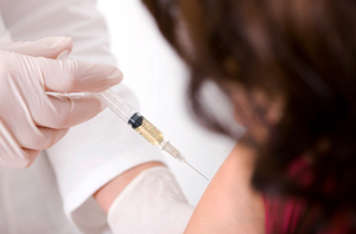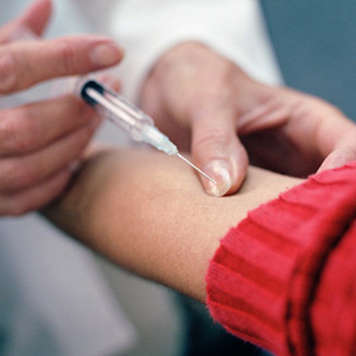
Immunizations (vaccines or “shots”) give you what’s called a “passive immunity” to certain infections. When you get a vaccine, your immune system is “primed” and will make antibodies to fight the infection.
Immunizations protect you and your community from diseases that can be prevented by a vaccine. You get some vaccines only once, but you may need others in several doses over time to completely protect you from infection. Most vaccines that are given over time are started when you are a baby. You then get booster doses later in your childhood or in your teen years. Overall, immunization programs have successfully ended several vaccine-preventable diseases such as polio and measles in their areas.
Vaccine considerations after transplant
An important step in keeping yourself healthy is to make sure your immunizations are up to date! If you can, try to get all your required vaccines before you receive a transplant.
The transplant team can arrange to give some vaccines over a shorter period of time to make sure patients can receive all doses before the transplant operation.
After your transplant, you need to take immunosuppressants to suppress, or weaken, your immune system so that it will not attack the transplanted organ. Because your immune system is weaker, however, it may not respond as well to a vaccine and so the vaccine may not give you the best protection.
There are two types of vaccines.
- Attenuated, or killed, vaccines – these contain parts of a virus that have been killed. The immune system still recognizes those parts and can make antibodies to the virus. As a transplant patient, you can receive attenuated vaccines, but you may not make as many antibodies as usual because your immune system has been weakened.
- Live vaccines – these contain a small amount of living virus. As a transplant patient, you cannot receive a live vaccine because your immune system may not be able to fight the living virus that it contains.
Another live vaccine is the oral polio vaccine (the version taken by mouth). This is not available in Canada anymore, but it is still used elsewhere. Your body sheds this live virus through your stool. Because there is a risk that the virus could spread through the air this way, the oral polio vaccine is not suitable for transplant patients or anyone in their family.

Routine immunizations
Many factors affect when you can start receiving immunizations again after a transplant. For example, your immunizations will need to be delayed if you have had organ rejection and need high doses of immunosuppressants.
Most vaccines need to be given at least 12 months after transplant to make sure your body has the best response. However, some vaccines can be given sooner.
- Pneumococcal and meningococcal vaccines may be given as early as six months after transplant.
- The flu vaccine may be given as early as four to six months after transplant.
School vaccine programs
You will be offered some vaccines through school programs after you turn 12 years of age, such as hepatitis B, human papillomavirus (HPV) and meningococcal vaccines. In some cases, you will need higher doses than other kids your age. In other cases, you may have already received the immunization through the transplant team. For these reasons, please contact your transplant team before you get immunizations at school so that they can check what dose you need, if any.
Knowing if you are protected
The transplant team can order a blood test to measure titres (say: “tie-ters”) to see if your body has responded properly to certain vaccines. These titres tell us if you have immunity from these infections. If your titres are low, you may need a booster dose of vaccine.
Vaccine side effects
Most vaccines do not have any serious side effects. Normally the main reactions after a vaccine are a sore arm for a few days and a possible fever. Tell your doctor, nurse practitioner, nurse, or pharmacist if you have any other symptoms that might be related to a recent immunization. The health care provider can then report the side effect to Health Canada.






